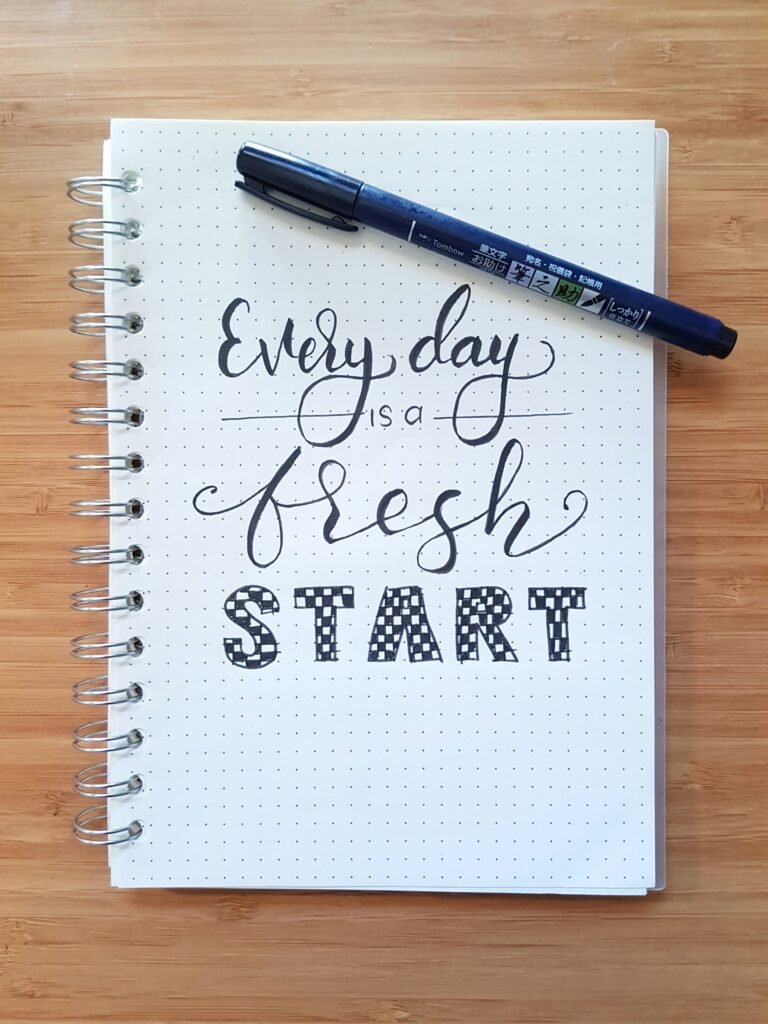Imagine having a skilled and compassionate ally by your side, guiding you towards a brighter and healthier future. That’s exactly what a mental health professional can offer. With their expertise and support, they can help you navigate the complexities of your emotional well-being and assist you in setting achievable goals. Whether it’s managing anxiety, improving relationships, or boosting self-esteem, a mental health professional can help you uncover your potential and empower you to reach your desired outcomes. With their guidance, you can embark on a remarkable journey of growth and self-discovery, one that leads to a fulfilling and meaningful life.

Read More Information at Health Joy
Understanding the Patient’s Needs
Assessment and Evaluation
When seeking help from a mental health professional, the first step is often an assessment and evaluation process. This involves the mental health professional gathering information about your current situation, exploring your personal history, and assessing any symptoms or concerns that you may be experiencing. This initial stage helps the mental health professional gain a better understanding of your needs and enables them to develop an appropriate treatment plan tailored to your specific circumstances.
Identifying Specific Concerns
Once the assessment and evaluation process is completed, the mental health professional will work with you to identify specific concerns that you may have. These concerns can vary widely, ranging from anxiety and depression to relationship issues or substance abuse problems. By identifying and addressing these specific concerns, the mental health professional aims to help you achieve improved mental well-being and overall quality of life.
Exploring Underlying Issues
In addition to addressing specific concerns, a mental health professional will also help you explore any underlying issues that may be contributing to your current mental health challenges. This process involves delving deeper into the root causes of your struggles, such as past traumas, unresolved conflicts, or negative core beliefs. By exploring these underlying issues, the mental health professional can assist you in gaining insight into yourself and developing strategies to overcome them.
Developing Coping Strategies
Identifying Triggers
One of the key aspects of improving mental health is identifying triggers that may exacerbate symptoms or lead to negative emotional states. A mental health professional can help you recognize these triggers, whether they are specific situations, people, or thoughts, and work with you to develop effective coping strategies to manage them. By identifying triggers, you can better understand your emotional reactions and proactively address them before they escalate.
Implementing Healthy Coping Mechanisms
Once triggers have been identified, a mental health professional can guide you in implementing healthy coping mechanisms to deal with them. These mechanisms may include relaxation techniques, mindfulness practices, cognitive reframing, or engaging in activities that promote emotional well-being. The mental health professional will work collaboratively with you to develop a personalized toolkit of coping strategies that can be utilized during challenging times, enabling you to better navigate and cope with various stressors.
Building a Support System
A mental health professional can also assist you in building a supportive network of individuals who can provide understanding, encouragement, and assistance throughout your mental health journey. This might involve strengthening existing relationships, cultivating new connections, or seeking out support groups or therapeutic communities. By building a support system, you can have a network of individuals who can offer emotional support and provide valuable perspectives, which can be instrumental in your mental health recovery.

Read More Information at Health Joy
Improving Communication and Relationships
Enhancing Interpersonal Skills
Effective communication is vital in fostering healthy relationships, both personally and professionally. A mental health professional can help you enhance your interpersonal skills, such as active listening, assertiveness, empathy, and conflict resolution. By improving these skills, you can establish healthier communication patterns, express your needs and boundaries more effectively, and develop stronger connections with those around you.
Resolving Conflicts
Conflicts are a natural part of any relationship, but when left unresolved, they can significantly impact our emotional well-being. A mental health professional can provide guidance and support in resolving conflicts constructively. They can teach you strategies for effective conflict resolution, such as “I” statements, finding common ground, and active problem-solving, which can lead to improved relationships and reduced stress levels.
Building Healthy Relationships
Building and maintaining healthy relationships is crucial for overall mental well-being. A mental health professional can assist you in developing and nurturing relationships that are supportive, positive, and beneficial to your mental health. They can offer guidance on setting healthy boundaries, improving communication with loved ones, and fostering trust and intimacy. By cultivating healthy relationships, you can experience increased happiness and fulfillment in your personal and professional life.
Managing Symptoms
Reducing Anxiety and Stress
Anxiety and stress can have a significant impact on your mental health and overall well-being. A mental health professional can help you develop strategies to reduce anxiety and manage stress effectively. This may involve identifying and modifying negative thought patterns, practicing relaxation techniques, engaging in regular physical exercise, or incorporating stress management techniques into your daily routine. By learning to manage anxiety and stress, you can experience improved mental clarity, reduced physical symptoms, and enhanced resilience.
Alleviating Depression Symptoms
Depression can make even the simplest tasks feel overwhelming and drain your motivation and energy. Mental health professionals can assist you in alleviating depression symptoms through various therapeutic approaches. This may include cognitive-behavioral therapy (CBT), which helps identify and challenge negative thoughts and behaviors, or other evidence-based interventions tailored to your specific needs. By addressing and managing depression symptoms, you can regain a sense of joy and vitality in your life.
Controlling Mood Swings
Mood swings can be disruptive and challenging to manage, impacting both your personal and professional life. A mental health professional can provide you with tools and coping strategies to better regulate your emotions and mood swings. Through therapies like dialectical behavior therapy (DBT), you can learn techniques like mindfulness, emotional regulation, and distress tolerance to cultivate emotional stability and improve overall well-being.

Developing Self-Esteem and Confidence
Identifying Negative Core Beliefs
Negative core beliefs can undermine your self-esteem and impact your overall mental well-being. A mental health professional can help you identify these negative core beliefs, which often stem from past experiences, trauma, or negative thought patterns. By recognizing and challenging these beliefs, you can develop a more positive and realistic self-perception, fostering a greater sense of self-worth and self-confidence.
Challenging Self-Doubt
Self-doubt can hinder personal growth and prevent you from pursuing your goals. A mental health professional can guide you in challenging self-doubt and developing a more constructive and self-affirming mindset. Through therapy techniques like cognitive restructuring and positive affirmations, you can learn to replace self-doubt with self-belief, helping you overcome barriers and realize your true potential.
Building a Positive Self-Image
Building a positive self-image is essential for mental well-being and confidence. A mental health professional can support you in building a more positive self-image by encouraging self-compassion, focusing on strengths and accomplishments, and embracing your uniqueness. By fostering a positive self-image, you can enhance your confidence and approach life with greater optimism and resilience.
Promoting Emotional Resilience
Coping with Trauma and Loss
Experiencing trauma or significant loss can deeply impact your emotional well-being. A mental health professional can help you address and heal from trauma or navigate through the grieving process. Through therapies like Eye Movement Desensitization and Reprocessing (EMDR) or bereavement counseling, you can develop coping strategies, process emotions, and gradually build emotional resilience.
Developing Emotional Strength
Emotional strength is the ability to withstand and cope with adversity. A mental health professional can assist you in developing emotional strength by teaching emotional regulation skills, practicing mindfulness techniques, and fostering self-care habits. By strengthening emotional resilience, you can better navigate life’s challenges and setbacks with greater adaptability and confidence.
Building a Resilient Mindset
A resilient mindset enables you to bounce back from setbacks and maintain a positive outlook. A mental health professional can help you cultivate a resilient mindset by reframing negative experiences, embracing change, and promoting self-reflection. Through therapy and guided exercises, you can develop skills to overcome obstacles, adapt to adversity, and approach life’s uncertainties with resilience and optimism.
Enhancing Problem-Solving Skills
Identifying Obstacles
Effective problem-solving skills are essential for overcoming challenges and achieving goals. A mental health professional can help you identify obstacles that may be hindering your progress and explore potential solutions. By recognizing and understanding these obstacles, you can develop strategies to overcome them and move closer to achieving your desired outcomes.
Developing Effective Strategies
A mental health professional can assist you in developing effective problem-solving strategies tailored to your unique situation. They can help you cultivate critical thinking skills, analyze situations from multiple perspectives, and brainstorm creative solutions. By learning and implementing effective problem-solving techniques, you can approach challenges with confidence, reduce stress, and improve your overall problem-solving abilities.
Improving Decision-Making
Many mental health challenges can stem from difficulty in making decisions. A mental health professional can provide guidance and strategies to help improve decision-making skills. They can help you clarify your values and goals, weigh the pros and cons of different options, and become more comfortable with making choices. By enhancing your decision-making abilities, you can improve your confidence and reduce feelings of indecisiveness and anxiety.
Addressing Substance Abuse and Addiction
Identifying Triggers and Factors
Addressing substance abuse and addiction requires understanding the underlying triggers and factors that contribute to these behaviors. A mental health professional can assist you in identifying these triggers, such as stress, trauma, or social environments, and explore the factors that maintain addictive behaviors. By recognizing these triggers and factors, you can develop strategies to manage or avoid them, reducing the risk of relapse.
Forming Relapse Prevention Plans
Relapse prevention is a crucial aspect of recovery from substance abuse or addiction. A mental health professional can work with you to create a relapse prevention plan that includes strategies for coping with cravings, developing healthy habits, and establishing a strong support system. By having a comprehensive plan in place, you can enhance your ability to maintain sobriety and navigate potential challenges along the way.
Building Healthy Coping Mechanisms
Developing healthy coping mechanisms is essential for individuals recovering from substance abuse or addiction. A mental health professional can help you explore and implement healthy coping mechanisms, such as engaging in alternative activities, seeking support from a sponsor or peers, or utilizing relaxation techniques to manage stress. By building a repertoire of healthy coping mechanisms, you can reduce reliance on substances and develop more adaptive ways of managing life’s challenges.
Promoting Work-Life Balance
Managing Stressors
Achieving work-life balance is crucial for maintaining good mental health. A mental health professional can assist you in identifying and managing stressors in both your work and personal life. They can help you develop strategies to set boundaries, delegate tasks, and practice self-care to prevent burnout and maintain a healthy balance between work responsibilities and personal well-being.
Setting Boundaries
Setting boundaries is essential for maintaining healthy relationships and avoiding excessive demands on your time and energy. A mental health professional can help you establish and communicate boundaries effectively, both in personal and professional settings. By setting clear and appropriate boundaries, you can maintain a healthier work-life balance and protect your mental and emotional well-being.
Prioritizing Self-Care
Self-care is a vital aspect of achieving work-life balance and preserving mental health. A mental health professional can guide you in prioritizing self-care activities that promote relaxation, stress reduction, and overall well-being. This may involve incorporating activities like exercise, meditation, hobbies, or spending quality time with loved ones. By prioritizing self-care, you can recharge, enhance your resilience, and experience greater fulfillment in all areas of your life.
Supporting Personal Growth and Development
Exploring Personal Goals
A mental health professional can help you explore and define personal goals that align with your values and aspirations. They can assist you in clarifying your ambitions, identifying obstacles, and developing an action plan to achieve those goals. By working towards personal goals, you can experience a sense of purpose, fulfillment, and personal growth.
Enhancing Self-Awareness
Self-awareness is a key component of personal growth and self-improvement. A mental health professional can support you in developing self-awareness by reflecting on your thoughts, feelings, and behaviors. Through therapeutic techniques, you can gain insight into patterns or dynamics that may limit your potential and work towards resolving them. By enhancing self-awareness, you can make more informed choices, adapt to challenges, and foster personal growth.
Realizing Full Potential
A mental health professional can provide guidance and support as you strive to realize your full potential. They can help you identify and harness your strengths and talents while addressing any self-limiting beliefs or barriers that may be holding you back. Through personalized strategies and encouragement, you can develop confidence, overcome obstacles, and work towards maximizing your personal and professional achievements.








